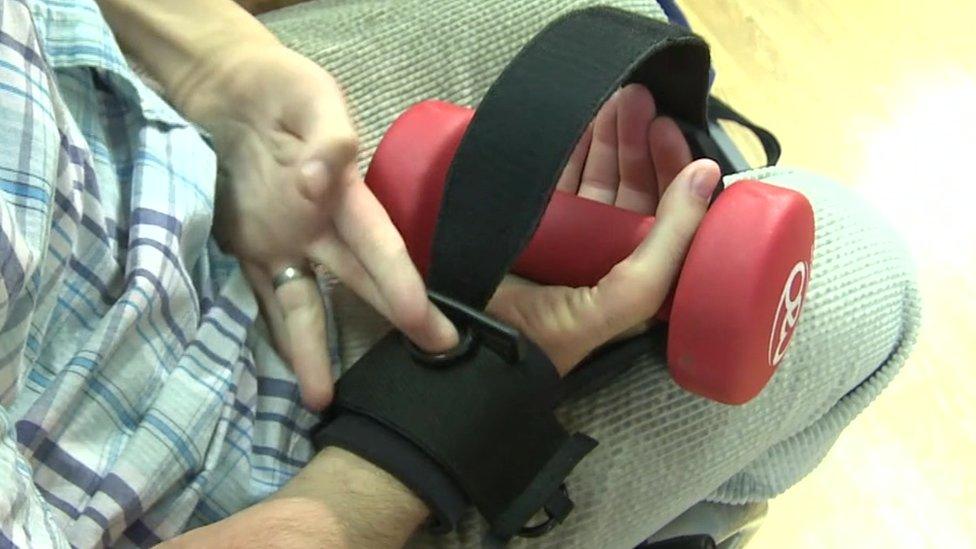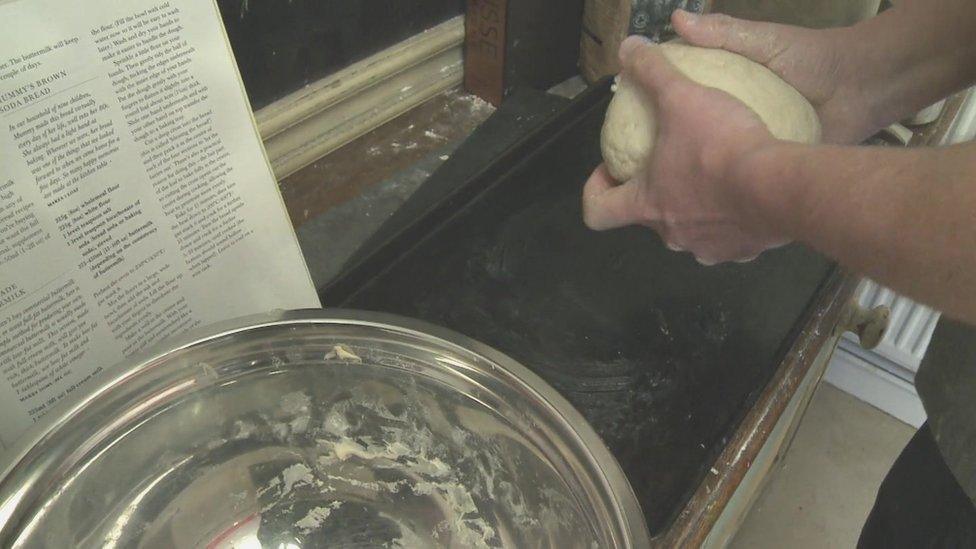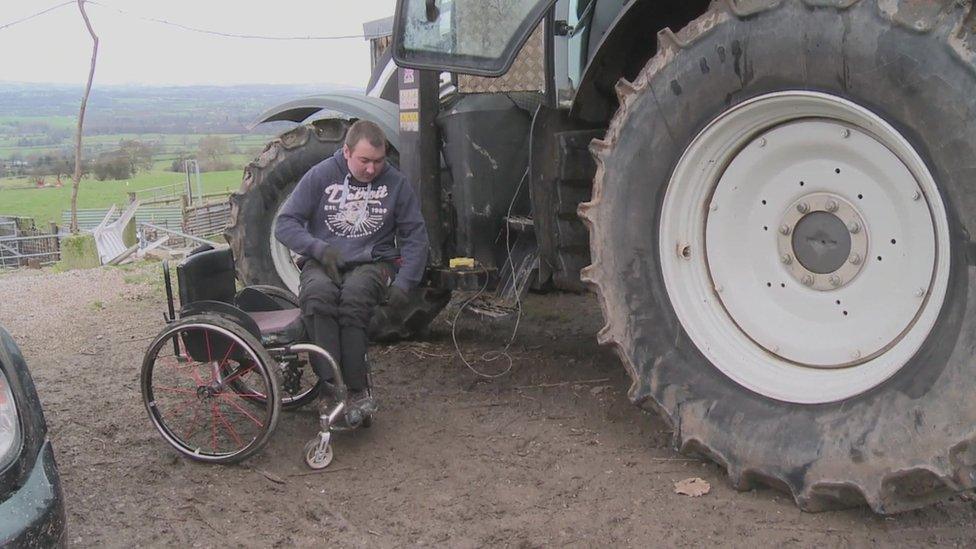Work-around: The disabled people creating bespoke businesses
- Published
Love it or loathe it your job can play a role in defining you. When these business people faced life-changing injuries and illnesses they set about creating their own companies which would work for them.
The designer: After the rock fall
How a paralysed man invented aids for disabled people
Rob Smith had been studying engineering at Warwick University when he fell down a rock face and into a gully while on holiday with friends. The back injury he sustained paralysed him from the waist down and impaired the use of his hands.
"When I came out of hospital I wanted to get back into what I was doing before, such as taking up new sports," he says.
"But I was struggling to grip items in the gym with my poor hand function so I developed something to enable me to do that on my own."
Smith tried many prototypes until he developed Active Hands, a grip-aid which goes over the hand and straps around the item that needs to be picked up.

Using a system of straps the Active Hand can help someone to grip an item
"A lot of the guys I was playing wheelchair rugby with at the time saw what I'd made and said 'that's really good can you make one for me?' So we started making a few more and that's how it developed."
So popular was the gadget that more than 100 Paralympians used it during the 2016 Games and about half of stock is sold overseas. This year's turnover is expected to be £250,000.
Smith says: "It really does empower disabled people and helps them to become more active and to get more access to activities that would otherwise just be impossible because of their weak hand function.
"We're really proud to be able to be a business and also help out those people to gain independence."

Disability Works
The BBC's business and economics unit is looking at how businesses work with people with disabilities and how disabled people have made business work for them
A range of stories will feature across online, TV and radio from 20-24 February 2017
On Twitter and Facebook you can follow the hashtag #DisabilityWorks and at the end of the week you can download the Ouch podcast

The baker: Taking a leap
Jacob Anthony is struggling to make his artisanal bakery a success
Jacob Anthony set up Loaf and Ladder Secret Bakery in Tonypandy, South Wales just a month ago after deciding his cerebral palsy and job as a hotel chef were incompatible.
He says he found his ataxic cerebral palsy - which affects hand-to-eye co-ordination - stressful in the pressurised environment.
"I started off as a banqueting chef in the Hilton, doing maybe 200 covers a night.
"The way my ataxic cerebral palsy affected me was that it was actually slowing me down.
"I couldn't chop things quick enough. I couldn't do the manual work quick enough which was then creating pressure upon myself."
Anthony left his job and opened the business which he describes as "not your usual bakery" focusing only on rustic, handmade, breads and steering clear of the "really pretty breads".

All of the bread made in the Loaf and Ladder Secret Bakery is handmade
"They're rustic and they're more in tune with the way my brain will allow my hands to work," he says.
After spending some time unemployed Anthony said making the leap from benefits to business-owner was difficult.
"Once I hit a threshold of £73 a week they start drastically reducing the housing benefit which effectively means I'm not taking a salary and I'm having to rely on my tax credits to basically feed me and keep the house warm."
He says the financial reality of running his artisan bakery comes with some tough decisions in the future which he hopes he doesn't have to make.
"The business has to take off within three to six months. If it's not done so by then I'm going to have to seriously reconsider my options."

The farmer: Continuing tradition
Paralysed tractor driver Matthew Evans: "It's a lifestyle, not a job"
In 2014 Matthew Evans, a farmer from North Wales, was hit by a car as he returned from an agricultural show and was paralysed from the chest down.
Rather than give up working on his family's farm he decided to set up a contracting business to hire himself and his tractor out.
"I've always been in agriculture, from working at home with my father on the farm. Of course I was worried that I wouldn't be able to do it again, but there's always ways around things.

Matthew Evans transfers from his wheelchair to the tractor using a specially built hoist
Evans set about adapting his tractor so everything could be controlled by hand and a hoist enables him to transfer between his wheelchair and the vehicle's cabin.
He is now focused on building up his business which serves farms across his local area and specialises in hedge-cutting, silage and hay bailing.
"It's a lot different. Frustration's the biggest thing, not being able to just jump out and open a gate. You have to be patient and ask a lot of people for help.
"But I also have a passion for doing it and I'll do it whatever. It's a lifestyle, it's not a job, I just love it."